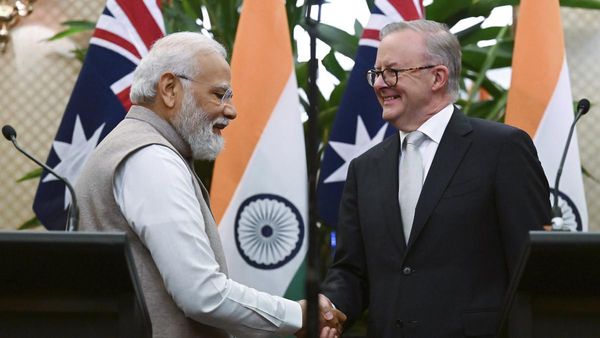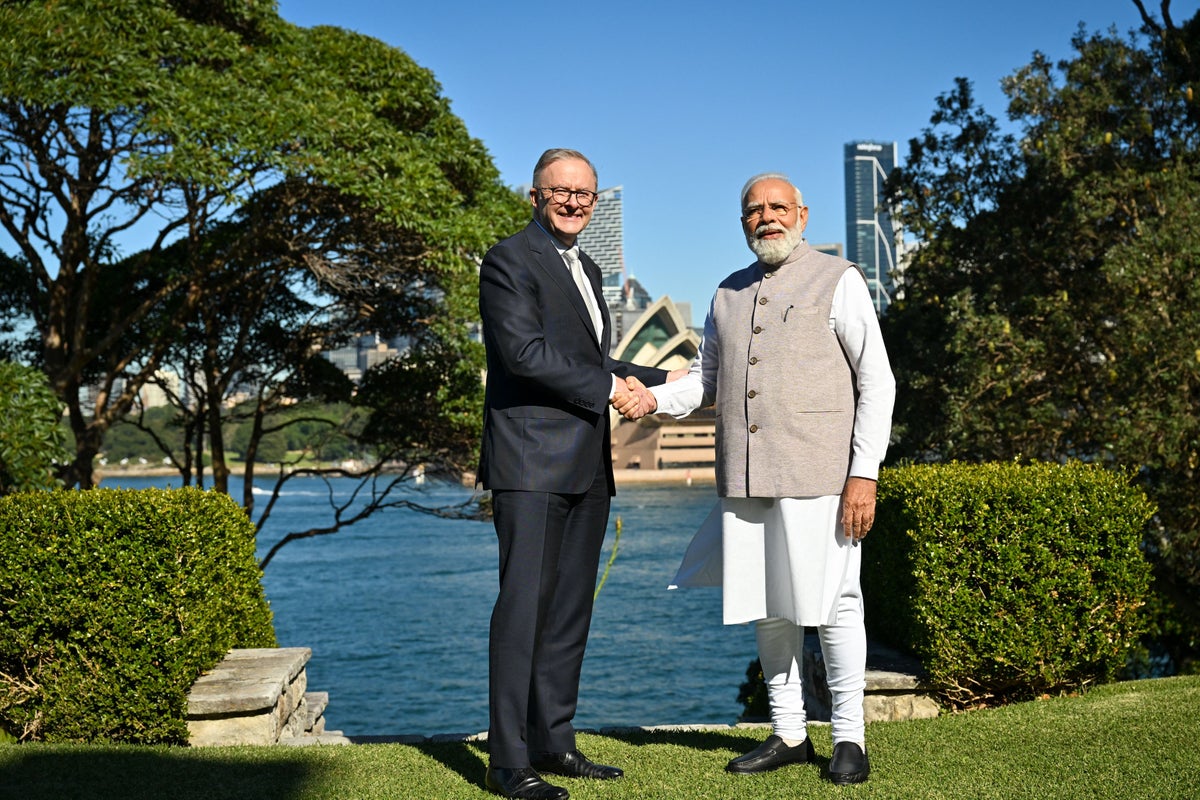
India and Australia have sealed a migration agreement during prime minister Narendra Modi’s visit to Sydney where he received a grand welcome by Indian expatriates.
Mr Modi and his Australian counterpart Anthony Albanese held bilateral talks on Wednesday to strengthen their diplomatic and economic ties as Canberra sought to balance growing strategic competition between the US and China – its largest trading partner.
Apart from the key agreements, Mr Modi raised concerns about attacks on Hindu temples by separatist Khalistani groups in the country.
According to the diplomatic statements, the new migration agreement – the India-Australia Migration and Mobility Partnership Arrangement (MMPA) – will promote the two-way mobility of students, graduates, academic researchers, and business people.
It will include a new skilled pathway named MATES (Mobility Arrangement for Talented Early Professionals Scheme), specifically created for India.
The deal was sealed following years of negotiations between the officials of the two countries as Canberra already has a fast-growing population of Indians.
The leaders also agreed on the terms of reference on a bilateral Green Hydrogen Task Force that will promote cooperation on producing the gas without the use of fossil fuels.
Mr Modi’s visit to Canberra came as a part of Quad grouping, that includes Japan and US. A Quad summit was held in Hiroshima, Japan, on the sidelines of the G7 meeting.
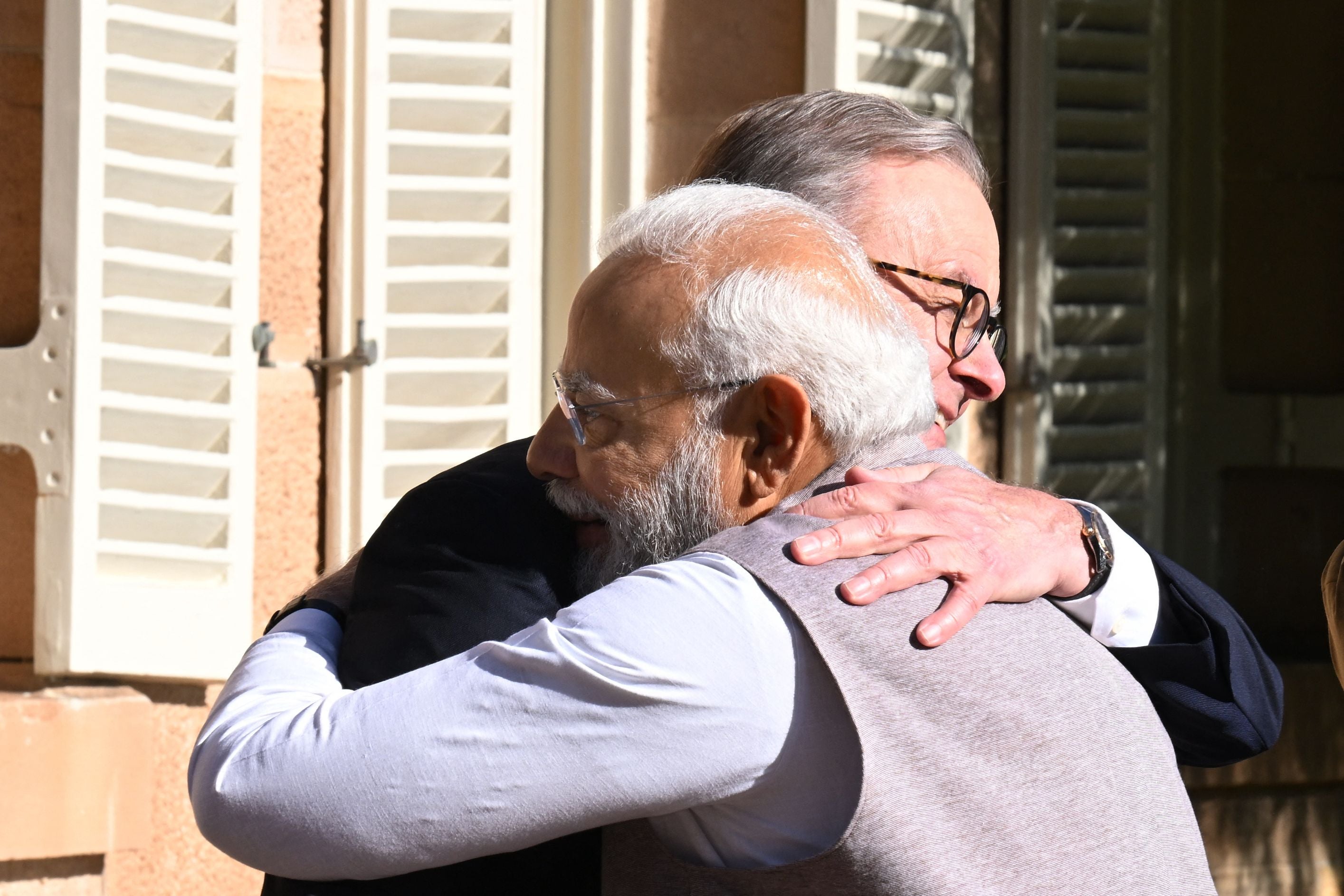
The Indian leader received a spectacular welcome by around 20,000 Indian expatriates who chanted “Modi” in Australia’s largest entertainment and sporting arena in Sydney.
The Modi supporters were flown to Sydney from Melbourne in flights called “Modi Airways” and from Canberra and Brisbane in “Modi Express” coach to greet the leader, with a one-way ticket costing around A$249 ($165.17).
"The last time I saw someone on this stage was Bruce Springsteen and he did not get the welcome that prime minister Modi has got," Mr Albanese said at the event where he called him a “boss” – a nickname usually associated with the legendary singer and songwriter.
But Mr Modi’s visit was also shadowed by protests by members of Khalistani groups that have demanded a separate homeland in India for Sikhs and activists who accused his government of attacks on Muslims and other minorities.
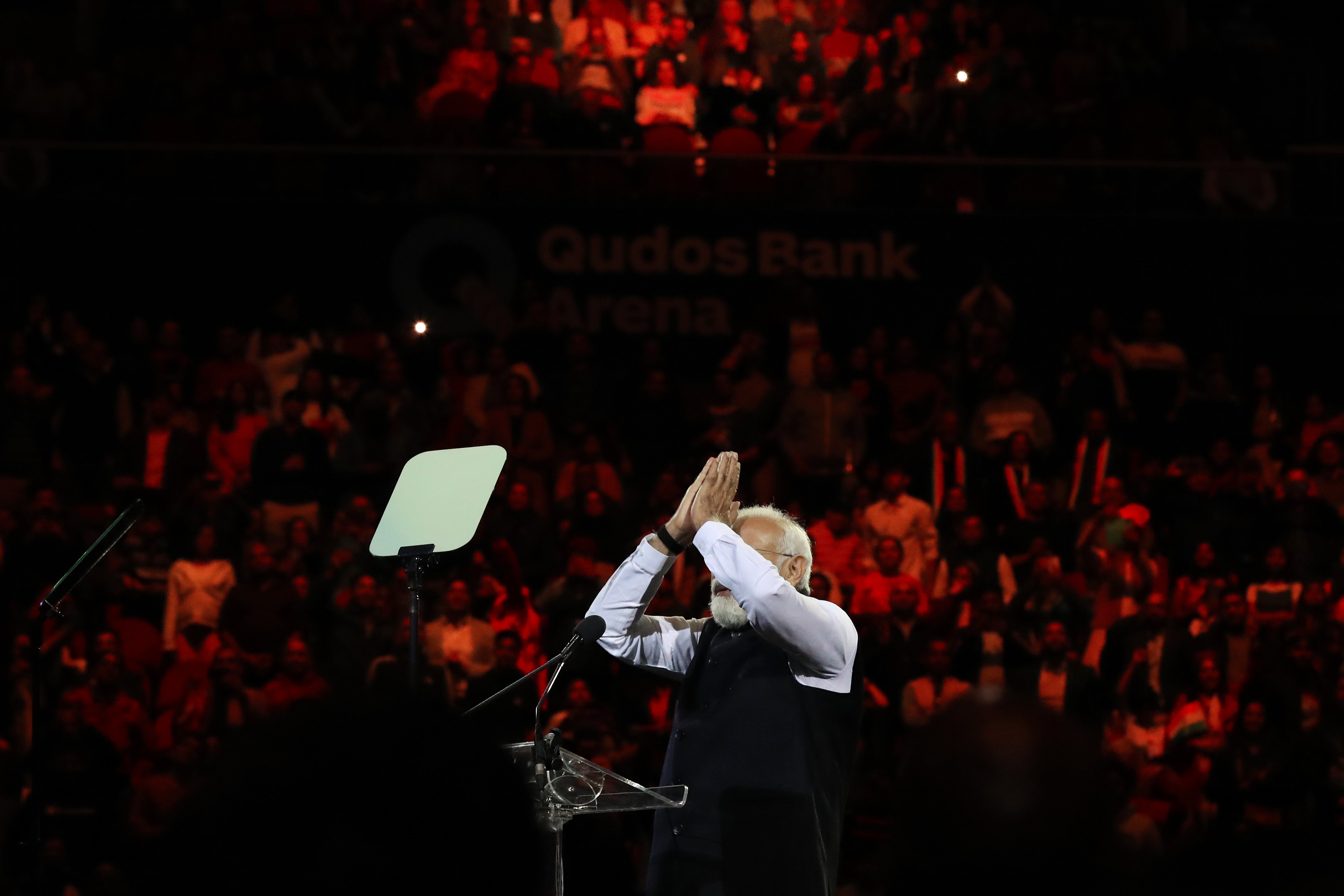
Several anti-Modi posters appeared around Sydney where several Hindu temples in the past have been vandalized.
In his wide-ranging talks, Mr Modi raised the issue of vandalism of temples. He was promised “strict actions” against the perpetrators.
"Prime Minister Albanese and I have in the past discussed the issue of temples in Australia and activities of separatist elements. We discussed also again today," Mr Modi said.
"We will not accept any elements that harm the friendly and warm ties between India and Australia by their actions or thoughts – I thank the prime minister for the actions that have already been taken.
"Prime Minister Albanese has once again assured me today that he will take strict actions against such elements in the future."
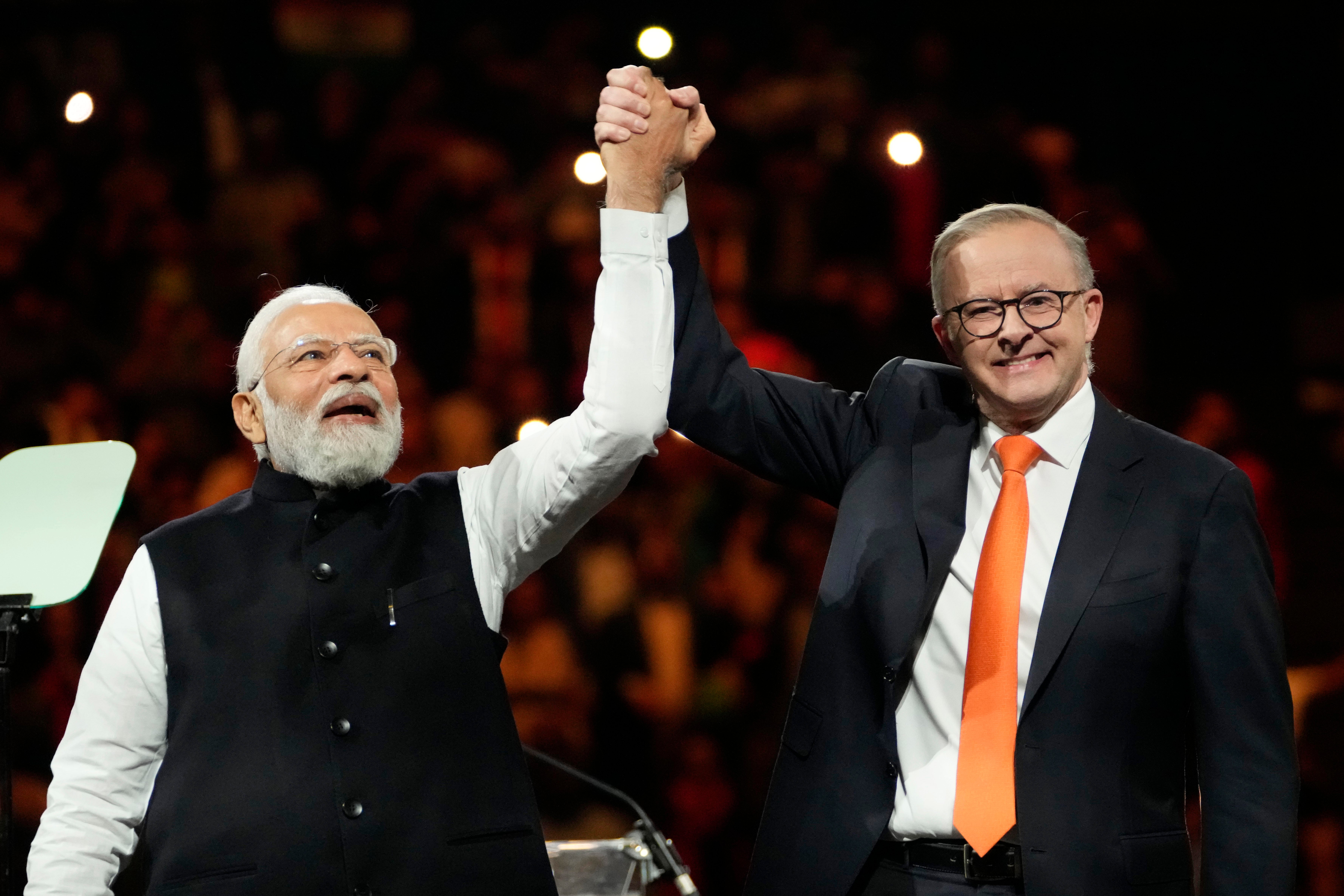
The Indian diaspora accounted for three per cent of Australia’s population, becoming the nation’s fastest growing ethnic minority. Mr Modi addressed the Non Resident Indians (NRIs), who are eligible to vote in an Indian election but need to fly down to cast their ballot, as he prepared for a 2024 re-election bid.
Mr Albanese said that the deepening ties are “linked to regional stability, peace and global welfare” and the two discussed Indo-Pacific issues as well in Hiroshima.
The two leaders said they were committed to complete negotiations on a free trade deal – the Comprehensive Economic Cooperation Agreement – before the end of the year.
They also made announcement of two new diplomatic posts, one in India’s Bengaluru and another in Brisbane, Australia.






